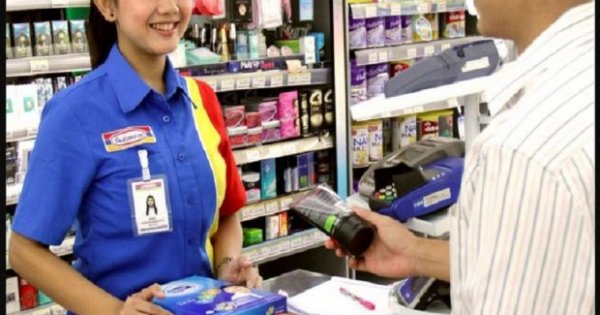Asking people to donate to a cause when they buy something can make them feel more worried. People usually think that giving money to charity at the register makes them feel good, but we have found that this isn't always the case.
For our study, which was written with Alex Zablah, we looked into how customers react when cashiers or automated checkout kiosks ask for donations.
We talked to 60 shoppers and asked them to describe how they felt when they were asked to donate while checking out at a variety of stores, based on what they remembered. About 40% of the words these customers used showed how anxious they were, such as "pressured," "annoyed," and "worried about being judged." Another 7% of the words, like "guilty" or "bad," also had negative meanings. The rest, like "indifferent," were neutral.
In these interviews, only about 20% of the words people used to describe how they felt were positive, like "nice" or "compassionate."
We also did a number of experiments online, in which 970 people took part.
All of them were told to pretend they were buying something, either at a drive-through restaurant or a grocery store. Half of them were also told to think about being asked to give to a charity at checkout. The results matched what we'd learned from the interviews. People in the groups that had to focus on making a donation felt more anxious than those who only had to make a purchase.
We also found evidence that customers feel less anxious when they agree to donate, but only when the request comes from a cashier instead of a computer or self-service checkout machine.
Why it's important
In 2020, the U.S. checkout charity campaigns raised $605 million for a wide range of causes, with many people giving just a few cents.
Businesses that collect donations at the register do so for a good cause. When they raise money for local food banks or other causes, they don't get any direct financial benefits, like tax breaks.
Retailers and restaurants that do charitable work may think that their customers will think more highly of them, and there is some evidence that this is true.
But our study shows that this might not be the case for many shoppers. Because of this, stores and restaurants might want to think about the risks before taking part in these campaigns.
Especially, they might not want to ask customers to take part in checkout charity campaigns at self-checkout kiosks, where machines ask instead of people.
What don't we know?
We didn't look into why giving to charity at the checkout might hurt the popularity of a store. Asking shoppers to donate in front of other people might make them feel like they have to. Or maybe they don't want to chip in and get mad when the cashier asks them.
We also didn't find out if customers knew that businesses can't write off money that customers give them as a tax deduction.
Adapted from ‘Checkout charity’ can increase a shopper’s anxiety, especially when asks are automated


Post a Comment